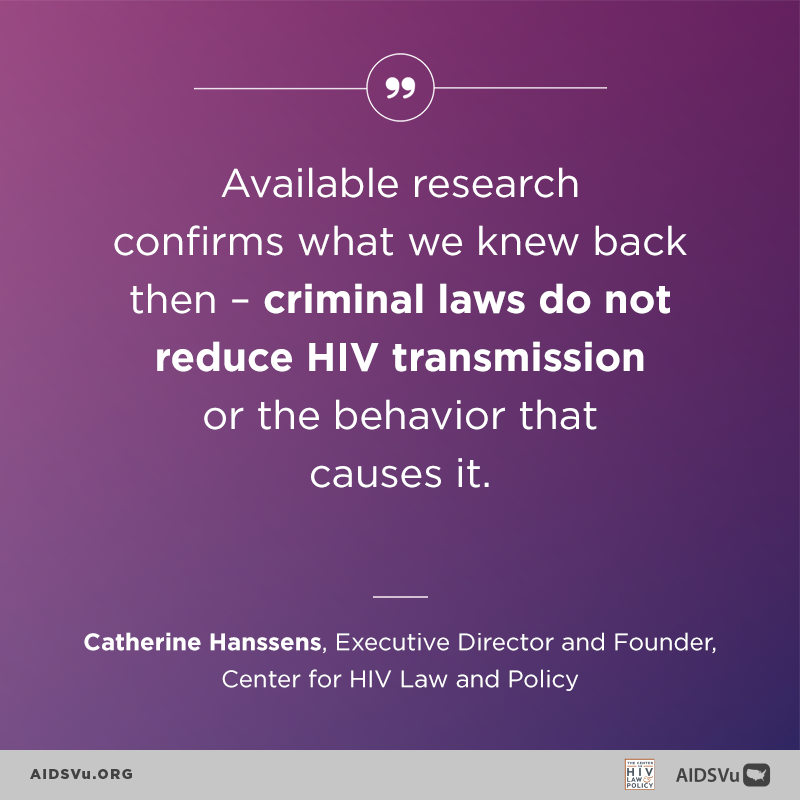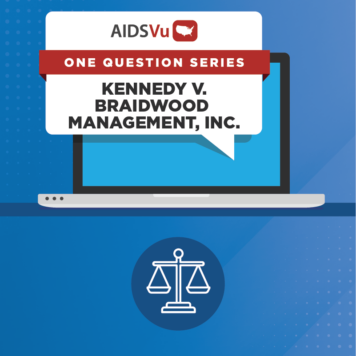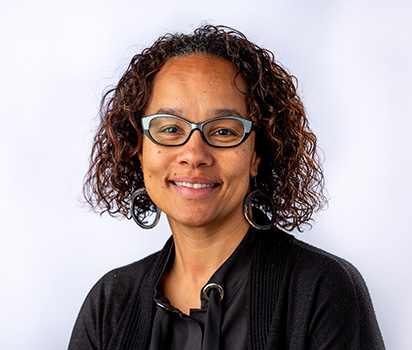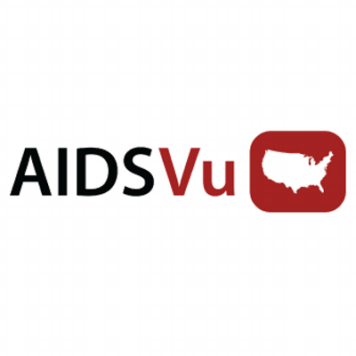Catherine Hanssens, Esq. is the Executive Director and Founder of The Center for HIV Law and Policy.
Q: Why did you decide to start The Center for HIV Law and Policy (CHLP) and what is your mission?
CHLP works to end the discriminatory regulation and punishment of sex, sexuality, and health status of members of marginalized communities. We focus on increasing the profile, inclusion, and quality of life of those on the furthest margins of our justice movements who stand to gain or lose the most from the issues and strategies we prioritize. This includes sex workers, people of color, people living with stigmatized diseases such as HIV and viral hepatitis, and people who use drugs. Many of these people also identify as LGBT; all are routinely targeted by and entrapped in the criminal law enforcement, corrections, and detention systems. Focusing on these systems, we advocate for transparent, humane, and fair criminal justice policies in which sexual orientation, gender identity, HIV/health/disability status, or any type of identity do not play a role in the prosecution of the individual.
CHLP is the product of my experience with HIV advocacy in direct legal services, impact litigation, and policy advocacy. Each of these areas of work is quite different and in each experience, I was struck with how hard it is for small local groups to get resources and how the larger groups didn’t share theirs. There was no centralized resource center to improve the capacity of smaller, local legal organizations that provide direct services. These smaller organizations best understand and handle the discrimination that most people with limited income deal with every day when seeking housing, employment, and any other basic services. I wanted to democratize access to the best materials and resources to aid advocates who provide the essential legal and policy advocacy on behalf of people affected by HIV.
After a decade of work representing incarcerated people and nearly another decade with a large national organization, I was frustrated by the lack of attention to government institutions that oppress and punish queer people of color through the criminal legal system. I wanted CHLP to jumpstart initiatives that could fight policies and laws that affect a vast number of people on the margins. CHLP’s Positive Justice Project (PJP) and Sexual Health Youth Advocacy Coalition (SHYAC) are examples of such initiatives. PJP is focused on the decriminalization of HIV and other diseases, and SHYAC is a national coalition advocating to guarantee access to sexual health care and literacy programs for youth in detention and foster care. A central principle in our approach is to increase power through collaboration, particularly by fostering new partnerships with groups working beyond an HIV-specific agenda, such as those in criminal justice and child welfare systems.
Q: HIV criminalization is the prosecution and imprisonment of people living with HIV for HIV exposure. What is the history of HIV criminalization laws and how do they continue to impact efforts to end the epidemic in the U.S.?
Legislation criminalizing the transmission of HIV started in the 1980s in response to specific events and was largely fueled by homophobia and panic that the developing AIDS epidemic – perceived as an exclusively gay male disease – would spread to the heterosexual majority.

By the late 1980s, the federal government got involved in promoting HIV-specific criminal laws in response to rising rates of infection reported among Gay men. President Reagan’s 1987 Presidential Commission on the HIV Epidemic recommended that states adopt HIV-specific criminal laws because they believed the existing penalties under assault laws were too lenient to deter intentional exposure. This Commission, created primarily to address severe discrimination against people living with HIV, unintentionally promoted the most significant deficit of HIV laws: eliminating burdens of proof, such as intent to harm, that must be met under traditional criminal law. Several years later, the Ryan White Comprehensive AIDS Resources Emergency (CARE) Act was enacted and provided funding to states based on the condition that their current criminal laws addressed intentional HIV exposure and transmission.
There also have been flurries of punitive legislation introduced in the wake of highly sensationalized reporting of individual cases, such as the Nushawn Williams case in New York during the late 1990s. Williams was accused of having sex with younger women while he was HIV positive and ultimately pled guilty to reckless endangerment and statutory rape. Williams remains incarcerated even after completing his sentences due to the New York Attorney General’s decision to initiate involuntary civil commitment proceedings against him just days before Williams was due to be released. Judging by the number of criminal HIV and infectious disease bills still introduced today, the bias and lack of HIV/STI literacy that underpin these laws clearly continues despite our successes.
Available research confirms what we knew back then – criminal laws do not reduce HIV transmission or the behavior that causes it. It is very difficult to provide a direct connection between a state’s criminal law and a particular individual’s inclination to get tested for HIV and stay in care. Telling a newly diagnosed person they will be prosecuted as a felon if they expose another person to HIV may not inspire them to stop having sex. But it might discourage them from entering and staying in health care, particularly when medical mistrust is already so high among the vulnerable populations targeted by these laws.
Maintaining HIV criminal laws while the country is promoting strategies to end the HIV epidemic and treat HIV like other diseases is inconsistent and irrational. There is now plenty of evidence demonstrating how HIV criminal laws increase stigma. These laws create a uniquely harmful un-American legal standard and produce felony penalties rooted in lack of knowledge about HIV transmission – that alone is enough to demand their repeal.
Q: There are many kinds of laws that criminalize HIV. What variations exist?
Each state’s HIV law is unique. Some states require an intent to exposure proven by the act of consensual sex, but most states require only simple exposure with failure to prove prior disclosure of one’s HIV status. Apart from several state reforms over the last few years, none require evidence of transmission or an intent to do harm. Several states target interactions with law enforcement, correctional, and emergency response employees in which spit or other bodily fluids of the person living with HIV in custody or under arrest comes in contact with the employee. Many laws extend felony sentences for sex workers living with HIV when charged with solicitation, even though in most cases there has been no sexual contact. Some impose sex offender registration on those convicted under an HIV criminal law. If a sex offense is committed by a person living with HIV, many states create additional sentence enhancements based on their HIV status. Most laws also cover behavior that has no chance of transmitting HIV.
Twenty-five states either rely entirely on their general criminal code to prosecute people living with HIV, typically as an aggravated assault and sometimes even attempted murder, or use these provisions despite the existence of an HIV-specific law. When a person is prosecuted under a provision of a state’s sex offense provisions, they usually also wind up on the sex offender registry.
Q: How often have these laws historically been used and how are they used today?
It appears to vary greatly from state to state, but we don’t have quality data in the majority of states because most cases aren’t reported in official publications or recorded in a publicly accessible database. For example, in New York, a state without HIV-specific laws, we have no idea how many people living with HIV in the state may be getting charged with bodily fluid exposure following an arrest or an altercation with corrections or law enforcement personnel. In the handful of states where the University of California Los Angeles (UCLA)’s Williams Institute conducted Freedom of Information Act (FOIA) requests followed by careful analysis of the cases and communication with justice officials, we learned that most of the HIV-related convictions involve Black women engaged in sex work. The exception so far has been Missouri, where most of the arrests and convictions involve bodily fluid contact with law enforcement and corrections staff. While the original intent of these laws appears to target Gay men, they actually represent a relatively small number of arrests. Based on the best data available, women of color who are sex workers and Black men targeted by police or those currently incarcerated make up most of the arrests and convictions.
Q: Several states have recently made a push to repeal some of their HIV criminalization laws. Which states are making progress in this direction and which states should we be watching? Is there a push for a federal statute that would make HIV criminalization illegal?
To date, eight states have taken measures to reform their criminal laws to varying degrees. California‘s and Washington State‘s reforms are the most sweeping; both states now require proof of intent to transmit and actual transmission for a conviction. They also treat intentional transmission as misdemeanors with a maximum sentence of six months in California or 30 days in Washington State. Both states eliminated all forms of HIV and communicable disease exposure as crimes in their states, including organ/blood/semen donations from people living with HIV, with limited exceptions applying to sex offenses.
In contrast, even after reform, North Carolina still connects potential criminal liability to viral load and proof of engagement in health care. Iowa eliminated the sex offender registry requirement and tightened up its intent requirements but added “recklessness” as a standard for liability and elevated other types of disease exposure– meningococcal disease, viral hepatitis, and tuberculosis – to a potential felony. Virginia advocates just got a bill signed into the law that is great in most respects but unfortunately still retains felony-level offenses. People convicted under most of these states’ laws continue to serve long felony sentences because none of the state reforms vacated sentences under the old laws.
So the progress to date is mixed, but I like to think that we are “failing forward.” Even with the passage of a bill that is less than ideal, we are making progress in raising public awareness of HIV criminalization laws and we continue to hold community-wide discussions of what real reforms should look like. We’ve seen that when inclusive advocacy in HIV criminalization reforms, such as protecting sex workers and other marginalized populations, is supported with precise legal analysis and available data, state advocates become increasingly unwilling to settle for less than criminal justice equity for all. State advocacy is expanding and local advocates are becoming more inclusive in their approaches to decriminalizing health conditions overall, not just HIV. Additional bills have been introduced or are ready to be presented in Ohio, Georgia, Missouri, New Jersey, and Nevada.
Although the federal government doesn’t have the authority to make state laws illegal, they can still reform archaic rules about sex and sexual activity for employees diagnosed with or living with HIV in the Department of Defense and the branches of the military. Presidential Advisory Council on HIV/AIDS (PACHA) approved a resolution calling for an end to criminalization years ago, following persistent advocacy by CHLP and others. National HIV/AIDS Strategy Federal Action Plan in 2015 required the Centers for Disease Control and Prevention (CDC) and the Department of Justice to assess the laws and make recommendations towards HIV decriminalization. Every year for nearly a decade, Representative Barbara Lee has introduced the Repeal Existing Policies that Encourage and Allow Legal (REPEAL) HIV Discrimination Act, but it never got traction and it’s not likely to make an impact without incentives for states to change their laws. Despite this standstill, there are other ways for Congress and federal agencies to exert meaningful pressure on states to revisit their criminalization of diseases, such as including requirements for states to certify that none of their laws disadvantage or punish its citizens on the basis of disease or disability status as a condition of federal law enforcement or disease prevention grant programs.
Q: Stigma is a major obstacle to accessing HIV services, such as prevention, screening, and treatment. How do HIV criminalization laws perpetuate the stigma around HIV and people living with HIV, especially among disproportionately affected communities such as Gay and Bisexual Men and women of color?
As I’ve suggested, laws based on myths and misconceptions surrounding HIV will perpetuate HIV stigma. Telling people that they are a potential criminal based only on a diagnosed health condition is harmful, particularly to people who have been told for centuries that they are not worthy of equal treatment under the law on the basis of race, sexual orientation, or gender identity.
Q: What can advocates and stakeholders in the HIV/AIDS space do to help raise awareness about the need to decriminalize HIV in the U.S.?
There are many ways to engage in the movement, regardless of where you live and whether you are part of an organization or an individual who wants to push back against over-criminalization of any kind. The current focus on over-policing and over-criminalization of people of color provides an opportunity to engage with policymakers on how disease criminalization is part of this problem and how law enforcement should not address a public health issue.
Towards that end, CHLP has joined forces with the Association of Prosecuting Attorneys (APA) on policy proposals to encourage a public health-focused rather than a criminal law-focused approach to all infectious diseases, including HIV and COVID-19. Over the last few decades, I’ve learned that when people have the unadulterated facts about infectious disease transmission from a credible source – the routes, risks, and treatment realities for HIV, Hepatitis C, and more – they begin to see the folly of criminalization. CHLP has been pushing for state legislators to start every session with a presentation from an infectious disease professional called, “What Every Law Maker Should Know About Sex and Infectious Disease.” If we addressed the lack of infectious disease literacy more proactively, we would make more progress towards reforming laws rather than playing defense against more criminalization laws.




